Imagine it’s 2003. Back in the days of dial-up internet and bulky desktop computers, the web was a vast space waiting to be discovered. Among the early explorers of this digital world was a tech genius named Matt Mullenweg. He happened to create a basic blogging platform, kind of like a digital journal for sharing your thoughts with the world.
It wasn’t exactly cutting-edge, but Matt saw something special in it. He teamed up with his tech buddy Mike Little, and together they decided to give this platform a major upgrade. Little did they know, they were about to create a platform that would make building websites easier than ever.
Fast forward to today, May 27th, 2024, and that once-simple platform we know and love, WordPress, is celebrating its 21st birthday!
WordPress has come a long way from its humble beginnings to powering over 43% of all websites on the internet. Let’s dive into its incredible journey and celebrate how it transformed the world of web publishing!
Quick Navigation
Milestones and Evolution: From Infancy to Youth
On May 27, 2003, WordPress was born out of a desire for an elegant, well-architectured personal publishing system. Co-founders Matt Mullenweg and Mike Little forked an existing project called b2/cafelog.
They aimed to create a strong platform that combines simplicity for users and publishers with the flexibility for developers. What started as a simple blogging tool has evolved into the most popular content management system (CMS) in the world. Let’s have a quick look at how WordPress has evolved in the last 21 years.
2003-2005: The Early Years
In its infancy, WordPress introduced features that set the stage for its future success. The introduction of plugins in 2004 allowed developers to extend the core functionality to make WordPress highly customizable. Themes soon followed, giving users the ability to easily change the look and feel of their sites.
2006-2010: Growing Pains and Major Leaps

As WordPress gained popularity, the community around it flourished. The release of WordPress 2.5 in 2008 brought a redesigned admin interface. It made content management even more user-friendly. This period also saw the introduction of custom post types to handle more than just blog posts and paving the way for its use as a full-fledged CMS.
2011-2017: From Blogging Platform to CMS Powerhouse
The introduction of the REST API in 2016 marked a significant leap forward. It opened up endless possibilities for developers to create powerful applications on top of WordPress. The shift towards a block-based editor, known as Gutenberg, began in 2017.
2018-Present: Embracing the Future
The launch of Gutenberg in WordPress 5.0 in 2018 was a game-changer, making the process of creating complex layouts as simple as dragging and dropping blocks. Continuous updates and improvements have kept WordPress at the cutting edge of web technology.
Since then Gutenberg is revolutionizing the way content is created and managed. This modular approach to content design has empowered users to build rich, dynamic pages with ease.
2024: The Latest Version of WordPress 6.5 “Regina”
WordPress introduced the latest 6.5.3 version on May 7, 2024, which is an improved version of the WordPress 6.5 “Regina”. This minor update addressed 12 bugs in the Core and 9 bugs specific to the block editor. Before that, the major release 6.5 was deployed on April 2, 2024. It pays tribute to Regina Carter, the famous jazz artist and teacher.

It’s a release packed with exciting features and improvements. In short, WordPress 6.5 is about giving users more control over building their sites and making them faster. Plus, it introduces cool new tools for developers. We will talk more about this release in the later part of this post.
What Makes WordPress Different than Other CMSes
WordPress is known for its user-friendly interface. An intuitive dashboard and drag-and-drop features make it accessible for everyone. You can get started quickly and build basic websites without needing extensive training. Other than cost efficiency and ease of use, WordPress is unique for the following reasons.
1. Open Source Project with Four Principles
WordPress is open-source software with the aim to democratize publishing. Its inclusive environment welcomes contributors from around the globe, who dedicate countless hours to building this platform. It is licensed under the General Public License (GPLv2 or later), which embodies four core freedoms:
- Freedom to Run: You have the freedom to run WordPress for any purpose, whether it’s a personal blog, a business website, or a nonprofit project.
- Freedom to Study and Modify: You can study how WordPress works and modify it to suit your needs.
- Freedom to Redistribute: You have the freedom to redistribute WordPress, sharing it with others to empower them to create and innovate.
- Freedom to Distribute Modified Versions: You can distribute copies of your modified versions of WordPress to others and nurture collaboration and innovation within the community.
By embracing these principles and freedoms, WordPress remains a platform that champions openness, accessibility, and the democratization of publishing for all.
2. The Power of Community
One of the biggest factors behind WordPress’s success is its incredible community. A passionate group of developers, designers, and users contribute their time and expertise to the platform’s growth. Whether it’s creating free plugins and themes, providing technical support, or simply sharing knowledge in forums, the community plays a vital role in keeping WordPress at the forefront of web technology.
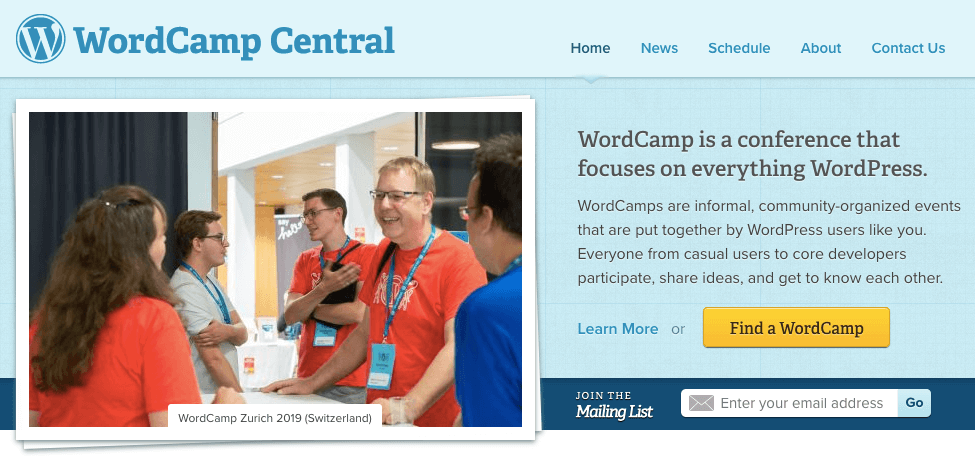
WordCamps, local meetups, and an active online presence promote collaboration and knowledge sharing and drive the platform forward. You can keep your eye out on the official WordCamp Central website to get the latest updates. Here are the probable dates and locations of the remaining major WordCamps to be held in 2024:
- WordCamp Europe 2024: June 13–15 | Torino, Italy
- WordCamp US 2024: September 17–20 | Portland, OR
3. The Five for the Future Program
Launched in 2014, the Five for the Future program encourages organizations to allocate five percent of their resources to WordPress development. The goal is to gain recognition in all communities, beyond just open source and developer networks. Renewed emphasis on this program at the end of 2023 signals an increase in its impact in the coming years.
4. Always Looking Ahead of Time
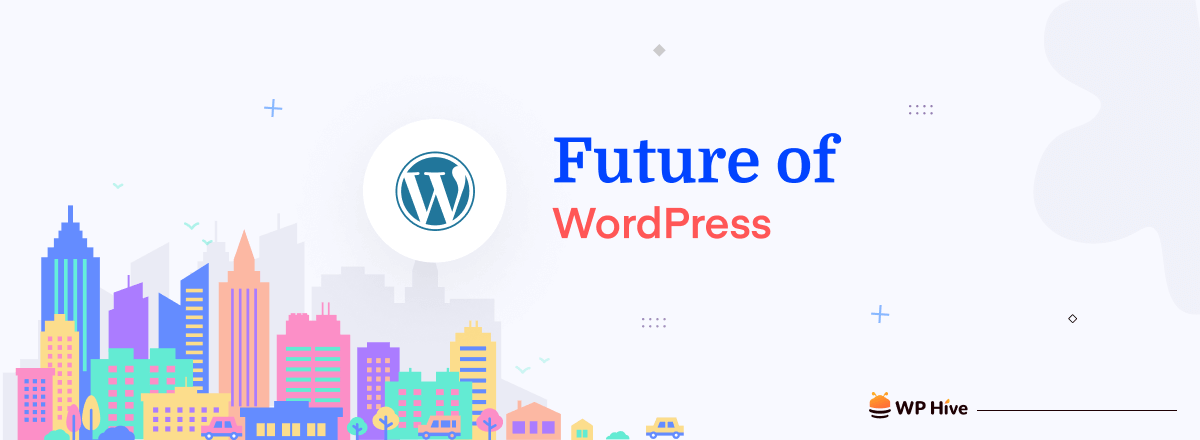
As WordPress celebrates its 21st birthday, the future looks brighter than ever. With ongoing developments in full-site editing, improved performance, and enhanced security, WordPress continues to evolve to meet the needs of its users. The upcoming features and improvements promise to keep WordPress at the forefront of web development.
5. Extensive Plugins and Themes Library
WordPress stands out with its massive library with over 60,000 plugins and 12,000+ themes. This empowers you to build the website you envision. Need a membership site? An e-commerce store? There’s a plugin for almost everything! And, you can transform your website’s look and feel with a stunning theme. Drag-and-drop editing makes customization a piece of cake, even for beginners.
Highlights of 2024 As of Now: WordPress Is Thriving in Its 21st Year
As always, in its 21st year, WordPress demonstrates a commitment to its founding principles of openness, collaboration, and democratizing publishing. As it continues to evolve, WordPress remains a powerful platform that empowers millions of users worldwide. While it’s still early in 2024 (as of May 27th), here are some highlights:
Data Liberation: Breaking Digital Barriers
Matt Mullenweg introduced a new project focus in 2024: Data Liberation. This initiative aims to simplify importing content from other platforms into WordPress. The Data Liberation initiative aims to enable one-click migration and improve WordPress’ export format, making it easier than ever for users to move their content freely.
Phase 3 of the Gutenberg Project: Collaboration

The Gutenberg project represents a complete reimagining of how we handle content on the web, with the overarching aim of expanding accessibility. The project unfolds in four key phases:
- Easier Editing — Currently accessible in WordPress, continually undergoing enhancements.
- Customization — Encompassing Site Editing, block patterns, block directory, and block themes.
- Collaboration — Introducing a more intuitive approach to co-authoring content.
- Multilingual — Core implementation tailored for multilingual sites.
Phase 2 concluded with the release of WordPress 6.3 in 2023. Now, WordPress is diving into Phase 3: Collaboration. This phase focuses on improving the co-authoring experience to make it easier for multiple users to work on content together seamlessly.
The Release of WordPress 6.5 “Regina”
WordPress 6.5 “Regina” is inspired by jazz violinist Regina Carter, known for transcending genres. This new version offers new ways to fine-tune and enhance the site-building experience. It also incorporates managing typography and comprehensive revisions. Here are some of the key features of WordPress 6.5 “Regina”:
- Breakthrough developer tools like Interactivity API and Block Bindings API for dynamic content.
- Font Library for managing fonts, enhanced background and shadow tools, and improved link controls.
- Data Views allow quick access to site data in a table or grid view.
- Improved drag-and-drop functionality with visual cues.
- Connects blocks to custom fields using Block Bindings API.
- Appearance tools added to Classic themes for better design experience.
- Easier management of plugin dependencies with the Requires Plugins header.
- Performance updates result in faster loading times and efficiency improvements across editors.
WordCamp Asia 2024 at Taipei, Taiwan
WordCamp Asia 2024 drew participants from over 70 countries, with 36% attending for the first time. The event featured 55 speakers, including industry leaders like Noel Tock, Ben Thompson, and Matt Mullenweg. Supported by 39 sponsors, the event had 1892 registrants and 1320 attendees, with over 6300 joining virtually.

Contributor Day saw 627 contributors, making it the largest in Asia and the first for Taiwan, with 110 new contributors. 46 organizers and 97 volunteers contributed to the event’s success. If you missed it this year, aim for WordCamp Asia 2025. It is set to take place in Manila, Philippines, in February 2025.
Some Interesting Facts to Celebrate 21 Years of WordPress
Older Than Social Media Giants: Believe it or not, WordPress was launched in 2003, predating social media giants like Facebook (2004) and Twitter (2006).
Powering a Huge Chunk of the Web: A staggering 43% (and growing) of all websites on the internet are built on WordPress!
Celebrity Users: From The Rolling Stones, The New York Times, Reuters, BBC America, and Microsoft to the White House blog, WordPress caters to a diverse range of users.
Translated into Hundreds of Languages: WordPress has transcended language barriers, being translated into over 200 languages. This makes it accessible to a global audience and empowers people worldwide to build websites.
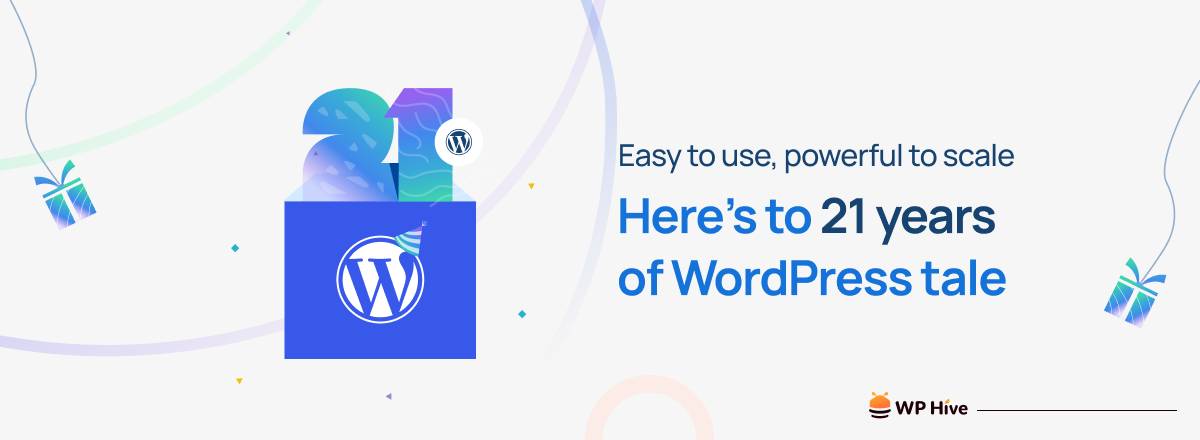
More Than 60,000 Free Plugins: Not everyone needs a premium solution! The vast collection of free plugins allows users to add features and functionality to their websites without breaking the bank.
WooCommerce Dominates E-commerce: If you’re looking to build an online store, WordPress is a great choice. WooCommerce, a popular e-commerce plugin built for WordPress, powers more than 20% of the top 1 million e-commerce sites globally.
Headless WordPress on the Rise: The concept of Headless WordPress, where the content management system is decoupled from the front-end, is gaining traction. This allows for greater flexibility and customization in building modern web applications.
WP Hive: Serving as a Better WordPress Repository Since 2020
While WordPress boasts a massive library of plugins, finding the right one for your needs can be overwhelming. That’s where WP Hive comes in, serving as a valuable resource for WordPress users since 2020.
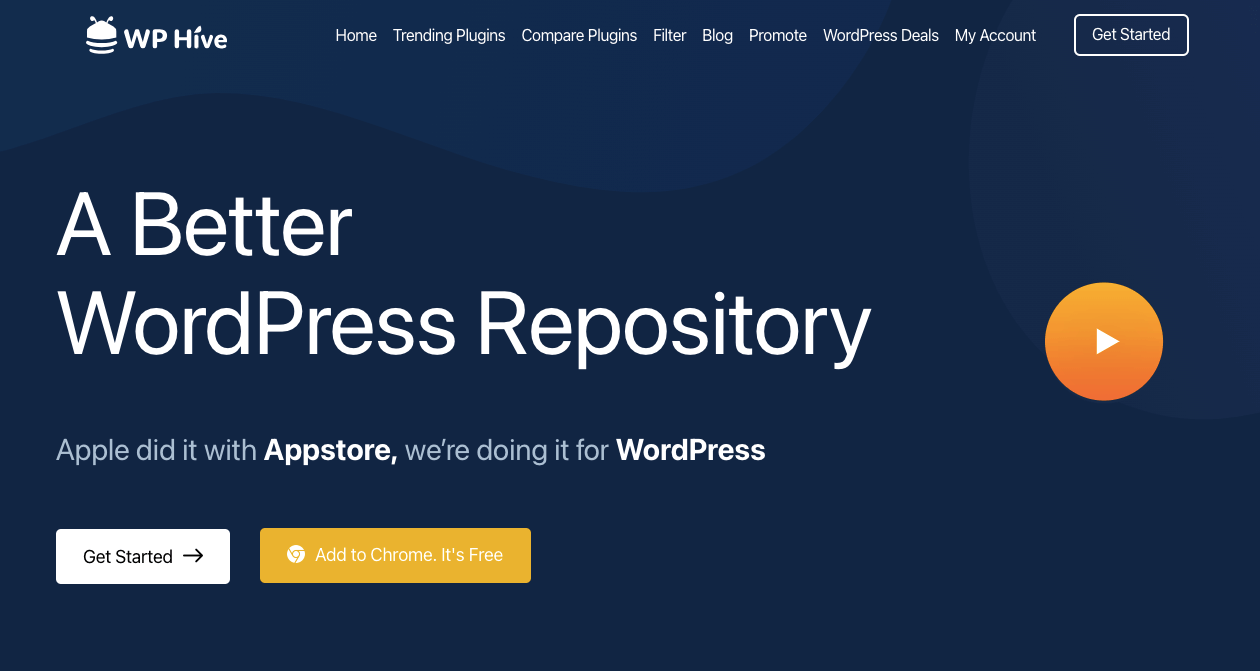
WP Hive is a valuable resource for any WordPress user seeking to optimize their website. By offering in-depth plugin analysis, performance comparisons, and a user-friendly search, it empowers you to choose the perfect plugins for your specific needs. Here’s what makes WP Hive stand out:
- Plugin Discovery: Categorizing plugins makes it easier to find the right tool for the job, whether you need a contact form, an SEO plugin, or something else.
- Comparison Feature: Struggling to choose between similar plugins? WP Hive’s side-by-side comparisons highlight key metrics like performance impact, making informed decisions a breeze.
- Continuous Crawling & Testing: A dedicated server tirelessly crawls and tests all 60,000+ plugins in the official repository.
- Regular Updates: Just like WordPress itself, WP Hive updates constantly, ensuring you have the latest plugin information.
- Scalable Infrastructure: WP Hive’s robust infrastructure, including Google Cloud VM instances, allows for efficient testing and data collection.
Important Note: WP Hive is a valuable third-party tool, not a replacement for the official WordPress plugin repository. You can still install plugins directly from WordPress.org, but WP Hive equips you with the knowledge to choose the best options for your website.
Join the Celebration: Happy 21st Birthday to WordPress 🎉
Today, we celebrate not just a platform, but a community and a movement. WordPress has made it possible for anyone to create a beautiful and functional website. As we celebrate its 21st birthday, let’s raise a toast to WordPress, its vibrant community, and the exciting possibilities that lie ahead.
We encourage you to share your WordPress stories in the comments below. How has WordPress helped you build your online presence? What are your favorite things about this amazing platform? Let’s come together to celebrate WordPress’s incredible journey and its bright future!
Happy 21st birthday, WordPress! Here’s to many more years of innovation, creativity, and community. Let’s conclude with a couplet I wrote to wish WordPress:
Easy to use, powerful to scale
Here’s to 21 years of WordPress tale.

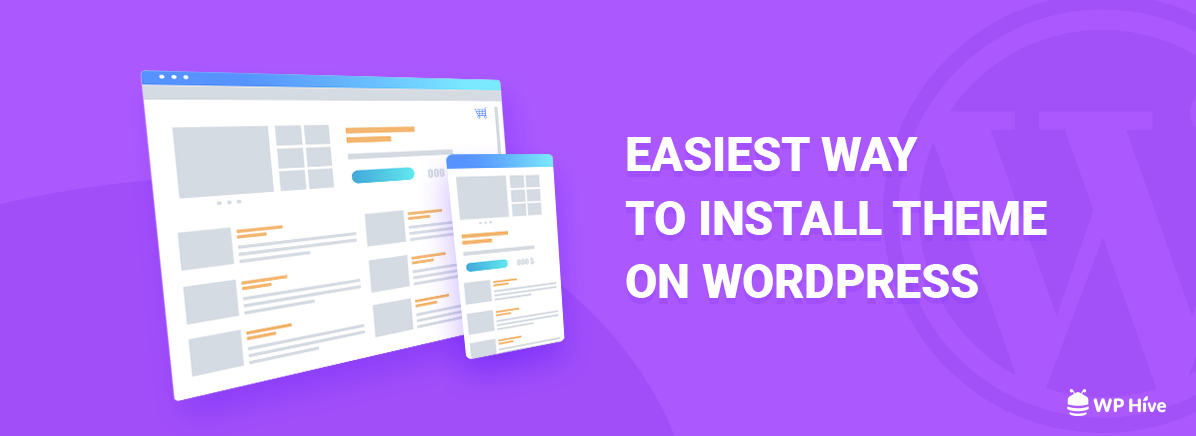
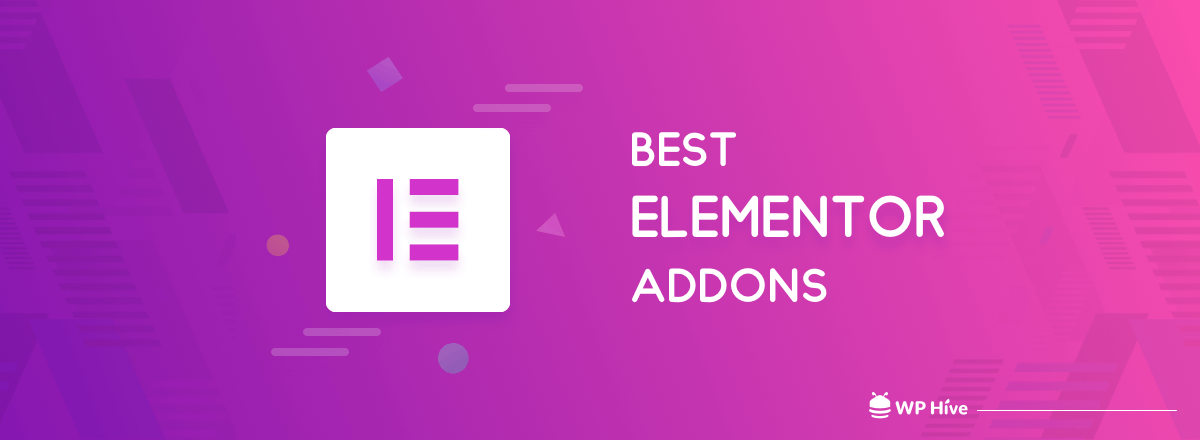

Add your first comment to this post